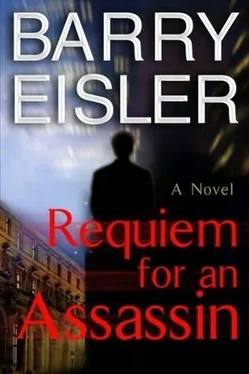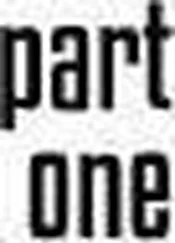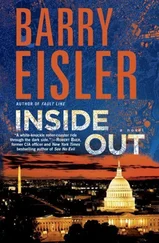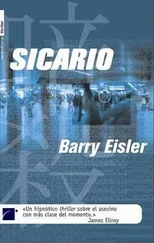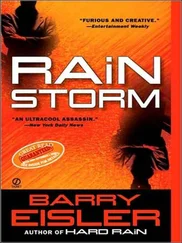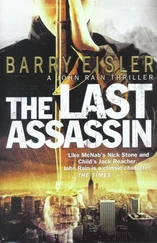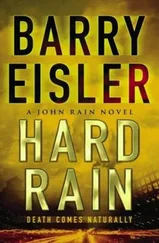I used the Cathay Pacific arrivals lounge to shower and change. Kanezaki had given me the second Dragon Skin vest, and I put it on now, half for protection, half against the likely cold outside. I took the usual precautions leaving the airport, then caught the train to Amsterdam’s Centraal Station.
I arrived to find a rainy, chilly, gloomy morning. Commuters shuffled past me on the slick pavement, umbrellas dripping, chins tucked into scarves. I was struck by the relative absence of conversation. Maybe it was the hour, maybe the chill, but the mood of the area was quiet, even dour.
I bought a hat, scarf, gloves, an umbrella, and a map at a station shop. None of the shops that were open sold jackets-or knives, which I wanted almost as much. I’d have to wait until something opened later, when I could outfit myself properly. In the meantime, I was going to be cold again.
I took the GVB tram to Leidseplein, near Vondelpark, where Boezeman lived. I knew the square was a lively spot at night, but it wasn’t quite nine in the morning now, and the dozens of bars and restaurants and coffee shops were shuttered. I paused on a bridge over one of the antique canals that circled back from the harbor like concentric strands on a spider’s web, looking down briefly at the wet leaves floating on the murky water, a pair of geese gliding by, improbably white and pure in contrast to the Stygian waters around them. Cars passed me, their headlights weak against the wet winter morning gloom, their tires spraying water from giant puddles onto the sidewalks. Bicyclists pedaled stoically through the chill rain.
Vossiusstraat was only a five-minute walk from the tram stop. I found the street, a narrow, one-way, cobblestoned thoroughfare, and walked down it. I was entering an area where Hilger might anticipate me, and my alertness sharpened.
On the left side of the street was a long row of centuries-old, four-and five-story brick-and-stone buildings, one joined to the next. None of the doorways was set in deeply enough to offer someone a place to hide and wait. On the right side was the mile-long green strip of Vondelpark, separated from Vossiusstraat by a spiked, wrought-iron fence. I checked the park through the bars of the fence, pausing in front of parked cars for cover as I moved, and saw nothing out of place. A few people passed me, but their hands were visible and their vibe not dangerous. In the rain, shrouded by umbrellas, they gave me not even a glance.
I slowed and squatted with a parked car to my back as I passed number fifteen-an old, heavy wooden door with decorative carvings and a stained-glass window at its center. I looked at the exterior wall around the doorjamb, then inside the stained glass at the vestibule within. No buzzers, mailboxes, or other signs of individual units. Apparently Boezeman, or more probably the Boezeman family, owned the building, and the entranceway was theirs alone. Good to know.
The lock was new, and might have presented an impediment. But from my initial assessment of the terrain, I thought I’d prefer to force him into the vestibule when he arrived at or left the apartment, rather than try to gain entry in advance and wait for him inside. Without more intelligence on his circumstances and habits, waiting inside would have involved too many uncertainties, primary among them the potential comings and goings of family members. By contrast, the long, narrow street, with the park on one side, created various solid opportunities for watching and waiting, and surprising him at the entrance. It was too bad, really. If I could have been here two hours earlier, maybe even only one, I might have had a chance to greet Boezeman as he left his apartment on his way to work. I didn’t know what he looked like, but how many people would be coming and going from this one apartment? It would have been improvised, ad hoc, and involved some risk, but it could have been done.
I walked the streets for two hours more, absorbing the vibe of the area, focusing on Vossiusstraat. From Vondelpark I had a clear view of Boezeman’s apartment. That was useful, but only up to a point. I’d be able to see him coming and going, but wouldn’t be able to get to him in time to force him back into the entranceway, where I could talk to him privately. Waiting on the street itself, close to his building, was possible, but would look suspicious if I had to stay for very long.
I wondered how security conscious he might be. Responsibility for facilities security didn’t often translate into the kind of personal awareness that might have protected him from someone like me. On the job, he would think one way; off the job, thinking himself free of enemies, his habits might be lax. With Boaz and Naftali to help, we might be able to set up a watcher at each end of the narrow street. The third person would walk up and down the street, and we would trade positions periodically to avoid being too conspicuous. If Boezeman commuted by train, he would leave the street in the morning and arrive in the evening on foot or on a bicycle. If he drove, it would be the same thing in a car. Either way, with someone posted at each end of the street, we’d be able to see him coming and get the third person in position near his apartment before he arrived.
Assuming he didn’t carpool. Assuming he wasn’t married and didn’t leave with his wife or arrive in the evening after picking up the kids from day care. Assuming a thousand things, none of which we had time to properly screen for.
I bought a heavy wool jacket in a Leidseplein shop, then called Boaz from a pay phone. This time he picked up.
“Are you here?” I asked.
“We just landed.”
“Good. Your phone is scrambled?”
“Yes, but I still want to be careful not to disturb the other passengers.”
“I understand, there are people around you. All right, I’ve been having a look around. I see some possibilities. When can you meet?”
“How about tonight, the hotel we talked about before, and, say, two hours earlier?”
“Even earlier would be better. It would give us a window to meet Boezeman when he comes home from work.”
“Maybe. I have a local friend who’s going to give us presents. I don’t think we’ll want to show up empty-handed.”
He had a point. There were already so many unknowns. With guns, we’d at least improve our chances of quietly getting Boezeman into his apartment, of controlling him and anyone else we found there, and of establishing the necessary fear that might induce the proper talkativeness. And there were other tools we would probably need to track Hilger, if in fact he were in town.
“I’ll call you again at fifteen hundred,” I said. “We’ll see how far along you are then.”
I found an Internet coffee shop, or koffieshop, as the locals knew them, a place called Get Down To It, on a side street off Leidseplein, and descended the stairs to find a terminal and see what Kanezaki had for me. Halfway down, the rich, heady smell of cannabis enveloped me, and for the second time in not much more than a week I was back in Saigon, a young man this time, a boy, really, on leave and smoking the Thai Stick an enterprising rear-echelon type had smuggled in on a military flight from Bangkok. The iceman breathed it in, exulting in an almost physical sense of recall, the memory of what it was to be a teenager with skills and a license to use them, ten thousand miles from home and making it up as we went along, knowing no one had ever been here before us, like Neil Armstrong on the moon but better, juiced with hormones and adrenaline, excitement and fear, an adolescent’s curious mind and a predator’s deadly instincts. We knew we were special, anointed for our role, baptized by our experience, our childhoods shed, as lost and useless to us now as empty snakeskins. Everything else would come later-the horror, the cost of it, the regret. But on leave in Saigon, in the back of a dark Dong Khoi bar, high on Thai Stick and our status as gods, we had no idea what was being mortgaged, or what we would have to pay for it.
Читать дальше
